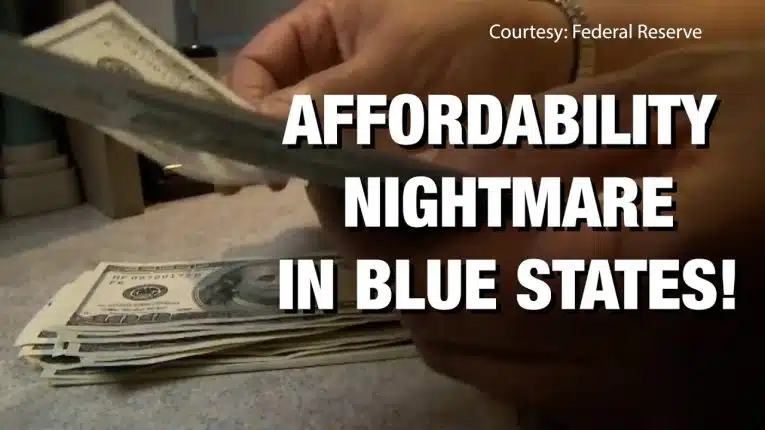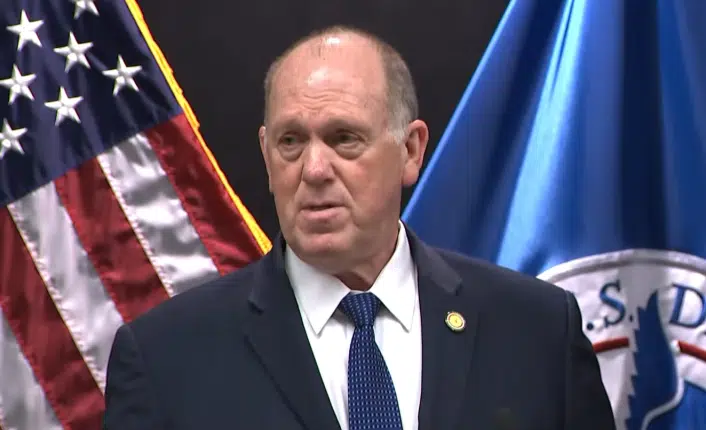By Marita Noon
When the name Resolute was chosen in 2011, after the merger of Bowater and Abitibi-Consolidated, the Canadian company, a global leader in the forest products industry and the largest producer of newsprint in the world, likely didn’t know what a harbinger it was. Today, it stands alone, set in purpose, with firmness and determination. Displaying the rare courage to stand up to the typical environmental extremists’ campaign of misinformation and shaming designed to shut it down, Resolute Forest Products is fighting back.
Many people are probably unaware of the shakedown tactics used by groups whose touchy-feely names belie their true goals.
Like most companies, Resolute originally went along. As Peter Foster explains in the Financial Post: “a cabal of radical environmental non-governmental organizations, ENGOs — including Greenpeace, ForestEthics and the David Suzuki Foundation — agreed to stop their campaigns of customer harassment in return for the members of the Forest Products Association of Canada, FPAC, agreeing to sanitize a swathe of the Canadian Boreal forest, and to ‘consult’ on development plans. Astonishingly, governments played no part.” The result was the Canadian Boreal Forest Agreement. The ENGOs ultimately aspired to put the majority of the Boreal forest off limits — ending economic development. Regarding the Greenpeace-promoted concept of “intact forest landscape protection,” Laurent Lessard, Quebec’s Minister of Forest, Wildlife and Parks, says it threatens “absolutely devastating” economic implications.
Resolute had been a major supporter of the Agreement and has participated in other efforts between ENGOs and industry to work out differences. Despite that, using a campaign of lies and intimidation, ENGOs have constantly attacked Resolute. At one point, in 2012, the false claims were so egregious, Resolute threatened legal action against Greenpeace — which garnered an unprecedented apology and retraction from Greenpeace. However, they came back with vengeance. Greenpeace continued to publicize the same false statements and dubbed Resolute a Boreal forest “destroyer.”
Engaged in a war without violence, Greenpeace has since attacked Rite-Aid Pharmacy for “getting millions of pounds of paper from controversial logging giant Resolute Forest Products,” calling Resolute: “a company with a history of environmental destruction.” Greenpeace was successful with a similar harassment campaign against Best-Buy. Resolute was the company’s primary paper supplier, but due to the shaming, Best-Buy announced it would seek other sources. Greenpeace has no plans to stop the tactic. Other targeted companies include Canadian Tire (a retailer with more than 1700 outlets), Home Depot and Office Depot, Proctor & Gamble and 3M. Foster reports: “Greenpeace itself has calculated that its campaigns have cost Resolute at least $100 million.”
Somewhere between the Greenpeace retraction and May 2013, an epiphany — similar to what occurred between the president of the U.S. and the space alien in the movie Independence Day — must have taken place. In the clip, the captured alien is choking someone with its tentacle and the president is trying to negotiate with it. He tries to reason with the alien and suggests that they could “coexist.” He asks the alien what it wants them to do. The alien simply responds: “die.” Resolute must have realized that no matter how many agreements it might sign, the global network of ENGOs come back with more and more rigid requirements until the tentacles choke the company out.
On May 23, 2013, Resolute filed a lawsuit against Greenpeace claiming it damaged the company’s “business, goodwill and reputation.” The suit asserts defamation, malicious falsehood and intentional interference with economic relations and seeks damages of $5 million as well as punitive damages of $2 million, plus costs. Greenpeace says the suit “is an effort to subdue Greenpeace into silence and send a message to other groups that they should stay quiet.” It believes the suit should have been thrown out, but despite several attempts, the Judge has disagreed and allowed unflattering accusations about Greenpeace’s global law-breaking activities to remain.
While the Canadian lawsuit makes its way through the courts and the appeals process, Resolute has just taken another bold step to defend itself against the green bully’s attacks.
On May 31, Resolute took a page from the ENGO’s playbook and, in the United States District Court for the Southern District of Georgia, filed a civil RICO (Racketeer Influenced and Corrupt Organizations) suit against Greenpeace and a number of its associates who, though they claim to be independent, act cooperatively. The RICO Act intended to deal with the mob as a loose organization, or “enterprise,” with a pattern of activity and common nefarious purposes, such as extortion. (Greenpeace has asked the Justice Department to use the RICO Act to investigate oil companies and organizations that sow doubts about the risks of climate change.)
The 100-page complaint alleges that Greenpeace and its affiliates are a RICO “enterprise.” According to the Resolute news release, it describes the deliberate falsity of the malicious and defamatory accusations the enterprise has made and details how, to support its false accusations, “Greenpeace has fabricated evidence and events, including, for example, staged photos falsely purporting to show Resolute logging in prohibited areas.” The suit also calls Greenpeace a “global fraud” out to line its pockets with money from donors and says that “maximizing donations, not saving the environment, is Greenpeace’s true objective.” Additionally, it cites admissions by Greenpeace’s leadership that it “emotionalizes” issues to manipulate audiences.
In the U.S. lawsuit, Resolute is seeking compensatory damages in an amount to be proven at trial, as well as treble and punitive damages.
Patrick Moore, one of the original founders of Greenpeace, is disappointed that the group that originally wanted to help, is now an extortion racket. He told me: “I am very proud to have played a small role in helping Resolute deal with these lying blackmailers and extortionists”
Discovery in both the Canadian and U.S. lawsuits will open up records and could well peel back the moralist tone to expose a global job-destroying, anti-development agenda. For too long ENGOs have been allowed free rein over regulating natural resources in what is really economic warfare on workers.
At a recent meeting, the Canadian Council of Forest Ministers, according to Foster, “acknowledged that it was time to stand up and recognize ‘the significant economic implication of misinformation’” — though one has to wonder what took them so long.
Resolute is counter-punching the green bullies — and it’s about time. Just ask the coal miners in West Virginia or the farmers in Central California who are wild with enthusiasm for the Trump candidacy that promises to end the regressive regulations and return the U.S. to economic strength.
Hopefully other companies will now tune into the public’s change in attitude and, with firmness and determination, will, also, fight back to protect shareholders and workers.
The author of Energy Freedom, Marita Noon serves as the executive director for Energy Makes America Great Inc., and the companion educational organization, the Citizens’ Alliance for Responsible Energy (CARE). She hosts a weekly radio program: America’s Voice for Energy—which expands on the content of her weekly column. Follow her @EnergyRabbit.







